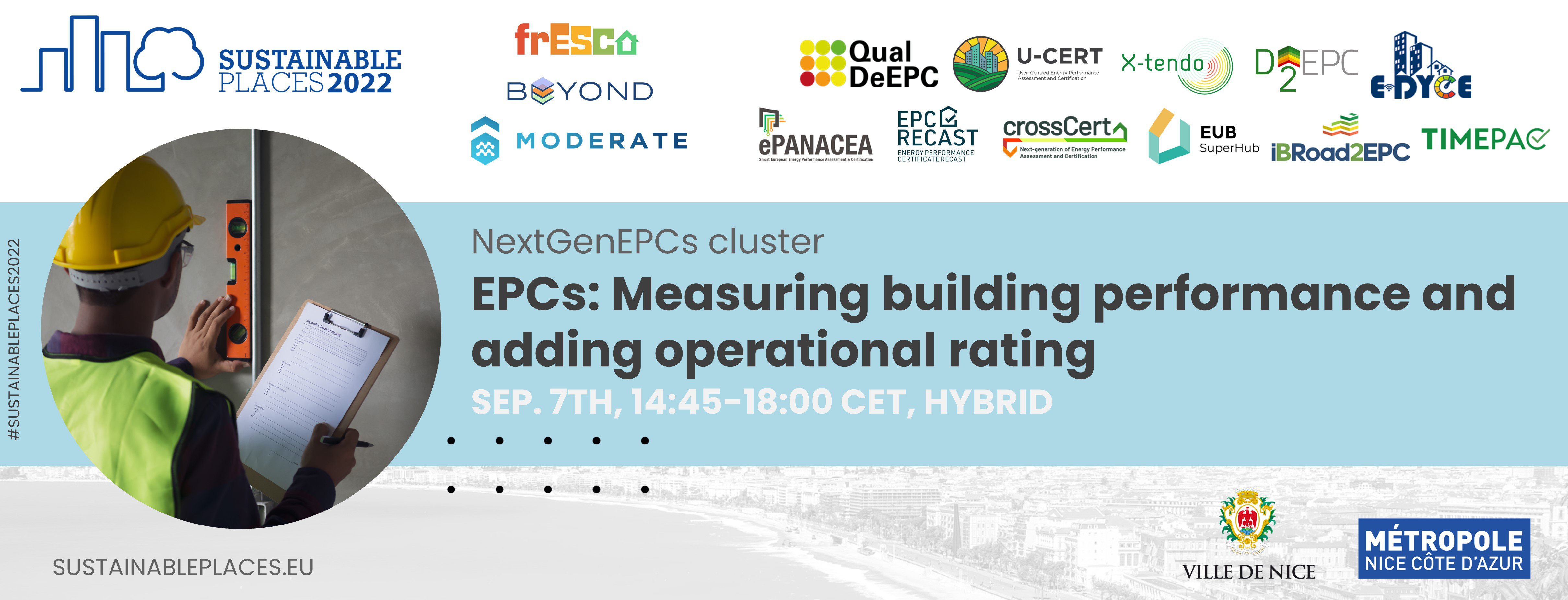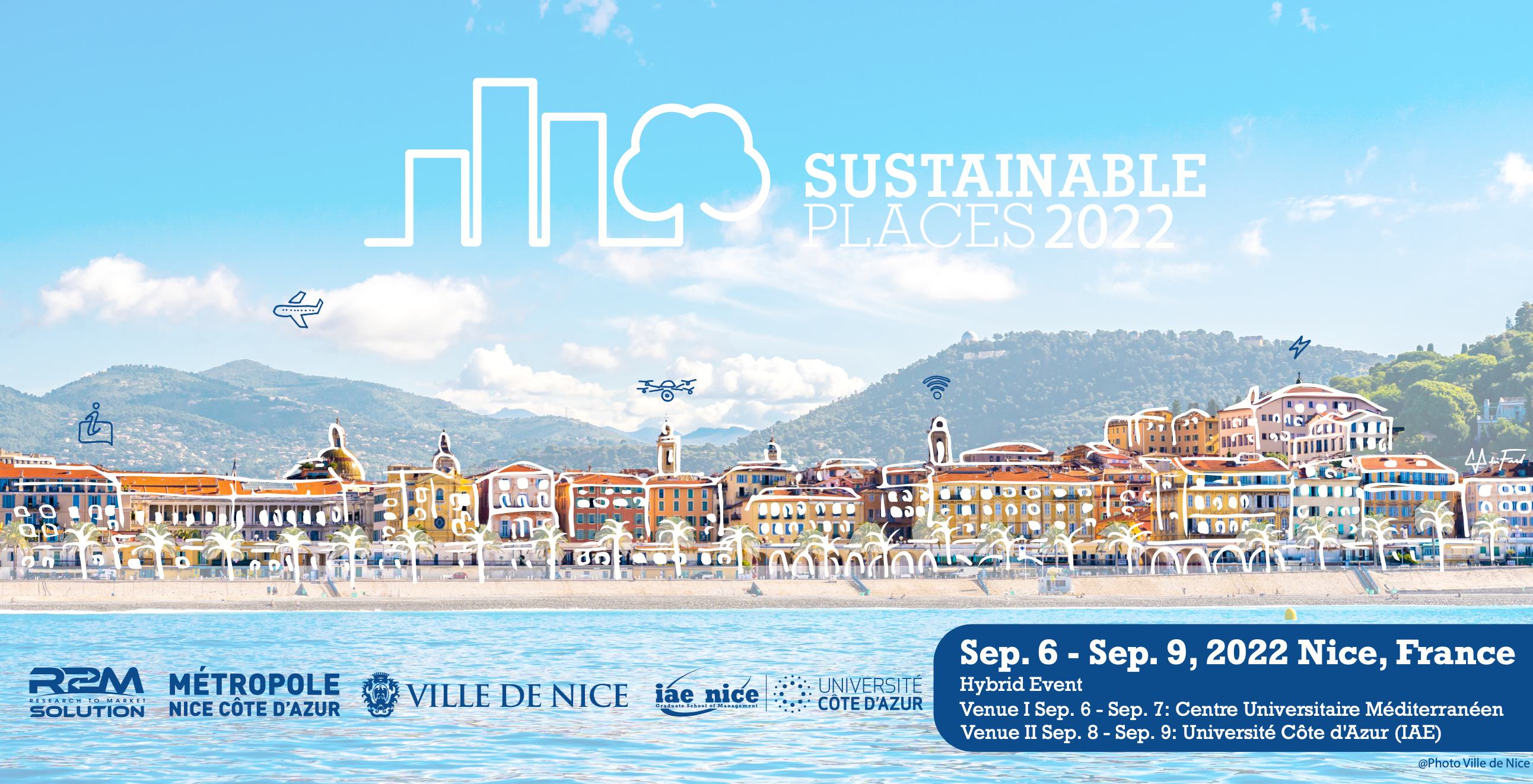

News
Energy Performance Certificates: Measuring building performance and adding operational rating

This workshop, powered by R2M Solution & REHVA, will be in English and will be held physically in Nice (Centre Universitaire Mediterraneen) and digitally via the Hopin platform, as part of the 10th annual edition of Sustainable Places (SP2022), hybrid event, from 6th September to 9th September, with the in-person sessions hosted in Nice, France.
Against the backdrop of the ongoing EPBD revision at EU level involving also the EU’s Member States which will then further transpose, implement and monitor the new EPBD in their countries, the members of the Next Gen EPCs H2020 cluster join forces with FRESCO, BEYOND and MODERATE projects and bring together a few guest speakers to set the scene on the topic of measuring building performance and adding operational rating to the already commonly used asset rating in the EPBD related Energy Performance Assessment and Certification Schemes.
Energy performance certificates (EPCs) are becoming the centre piece of the EPBD being linked to all the other policy instruments (e.g. SRI, Digital Building Logbooks, Renovation Roadmaps & Passports, Level(s)…) and soon to be used as reference for financing building performance activities. Thus, they withhold the highest potential to ensure an EPB coherence framework for all instruments to flawlessly work together.
Considering that it’s now our last chance to really make a difference in the buildings sector we need to increasingly consider measuring building performance and adding operational rating to guarantee building actually perform as intended in operation. There isn’t yet a single acknowledged way in doing this and if we’re to be effective in achieving the EU’s climate and energy goals and fully leverage the digitalization of the built environment in the process there should be at least an overall framework to be followed as guideline.
The main goal of this workshop is to ensure an open co-creation process maximizing quality, relevance, utility and effectiveness while avoiding reinventing the wheel and ensure a coordinated and convergent approach. Such an approach would greatly support the digital transformation of the EU’s building stock which in turn will enable and facilitate to arrive by 2050 at healthy, safe, efficient, flexible and zero-emission buildings for the people.
The main expected outcome is to leverage to the benefit of EU’s climate and energy goals the ongoing coordination, support and innovation actions in the next steps of the EPBD’s revision and it’s subsequent transposition, implementation and monitoring and the way the package of policy instruments will be meaningfully weaved together.
Programme
1st session 14h45-16h15 (CEST)
5 min – Welcome & intro by Andrei Litiu & Jasper Vermaut, REHVA (co-chair of SRI WG3, co-chair SmartBuilt4EU TF)
10-15 min – Keynote (setting the scene) by Shane Donatello, JRC (Level(s))
10-15 min – Keynote (setting the scene) by Marleen Spiekman, TNO
10-15 min – Keynote (setting the scene) by Judit Kimpian, ACE
35-50 min – Moderated panel discussion + Q&A from the audience
- 3 above keynote speakers
- Tasos Tsitsanis representing BEYOND
- Juan Antonio Aranda representing frESCO
- Lukas Kranzl representing MODERATE
5 min – Closing remarks and link to 2nd session by Andrei Litiu & Jasper Vermaut
2nd session 16h30-18h00 (CEST)
5 min – Welcome & intro by Andrei Litiu & Jasper Vermaut, REHVA (co-chair of SRI WG3, co-chair SmartBuilt4EU TF)
80 min – Moderated panel discussion Next Gen EPC H2020 cluster + Q&A from the audience
- Maike Venjakob representing QualDeEPC
- Marleen Spiekman representing U-CERT
- Lukas Kranzl representing X-tendo
- Paris Fokaides representing D^2EPC
- Michal Pomianowski representing E-DYCE
- Maria Fernandez Boneta representing ePANACEA
- Jana Bendzalova representing EPC RECAST
- David Jenkins representing crossCert
- Peter Gyuris representing EUB Super Hub
- Alexander Deliyannis representing iBroad2EPC
- Giovanna De Luca representing TIMEPAC
5 min – Closing remarks and next steps by Andrei Litiu & Jasper Vermaut
